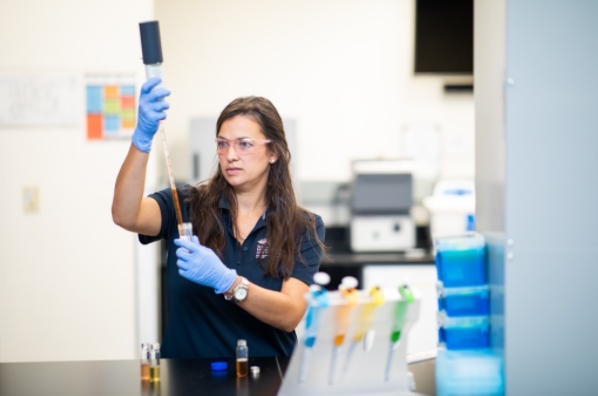A small investment in conducting in-house microbial analysis is one of the most accessible and effective things you can do as a brewery to maintain product quality and consistency. For as little as a few hundred dollars you can set up an inexpensive and reliable microbiology lab for monitoring product quality and stability.
Prepare a universal growth media by adding agar powder to your own low-gravity wort. Differential media such as LMDA, LCSM, HLP, etc. are available for purchase through www.dohler.com. You can also select for yeast or bacteria by adding antifungals or antibiotics to your media, respectively. Most media should be sterilized at 121˚C for 15-30 minutes under 15 psi using an electric pressure cooker, stericlave, or autoclave. Prepared sterile media and plates can also be purchased through your collaborators at the QA/QC
Beverage Analytics Lab.
Aseptic techniques and a clean environment for pouring plates and culturing are essential. Wear gloves and clean your environment with 70% ethanol. A portable Bunsen burner with a liquid propane tank will provide you with a confined sterile working environment. Standard procedure is to concentrate your sample via centrifugation or vacuum filtration for increased sensitivity, and to use both negative and positive controls to confirm both proper media preparation and aseptic technique.

Inoculate your plates with ~100ul of sample or control and place them on your benchtop or in an incubator set to 25-30˚. A small anaerobic environment requires an airtight container and some inert sachets. Keep in mind growth at room temperature or under anaerobic conditions may require a few more days. If you get results that have you scratching your head, you can always send samples out to the QA/QC Beverage Analytics Lab for full taxonomic identification or microscopic analysis.
Beer is delicious. Unfortunately, there’s a lot of spoilage microbes that think so too. It’s probably not a bad idea to assume your beer is contaminated until proven otherwise. A small investment in a micro lab will pay dividends and your customers will appreciate the clean and consistent beer. We are here to help; and hope to hear from you soon.
by Katie Strain, M.S., Beverage Analysis Lab Manager